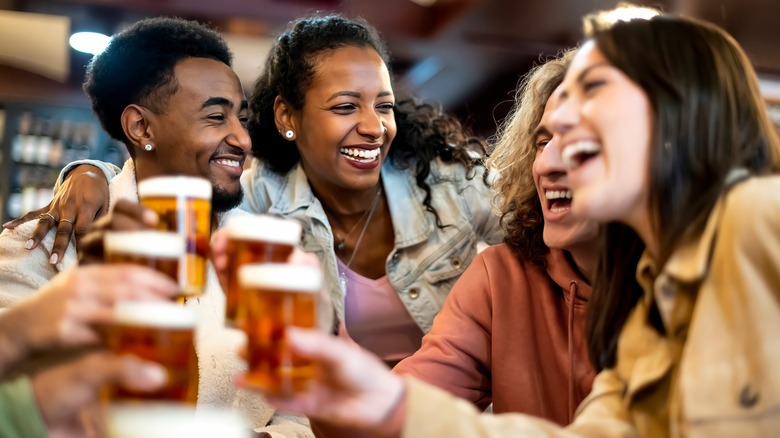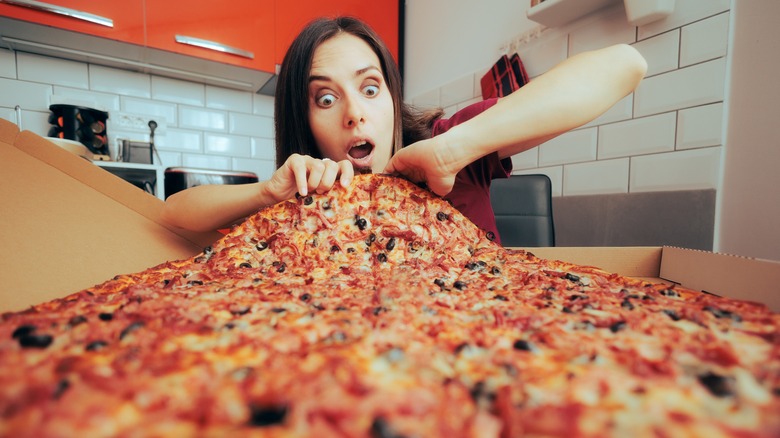Why Does Alcohol Make You Hungry?
You can blame the free happy hour food or the late-night pizza delivery, but oftentimes when you drink alcohol, the next day you realize you ate more than you intended. And let's face it, that leftover Chinese takeout in the fridge is so tempting after you've kicked back a few drinks. Why do we overindulge in food when we've imbibed too much at the bar? There are a few reasons for this.
First of all, alcohol weakens our inhibitions, which means tossing away any dietary restrictions and healthy eating goals we might have on other days. If we're sober, we might choose just one or two chicken wings. After a couple of beers, we feel a few more –- or the whole plate -– is just fine.
It's probably also no surprise that alcohol dehydrates you, which explains the many trips to the bathroom after you start drinking. Because alcohol is a diuretic, you need to replace those lost fluids. If not, you could mistake your thirst for hunger. Alcohol also lowers your blood sugar, which makes you crave carbs to stabilize your blood sugar levels (per CNN).
Alcohol changes your appetite hormones and hunger-related neurons
A moderate amount of alcohol also fools with how much leptin is secreted in the body, according to a 2001 study in Clinical Endocrinology. Leptin plays a role in suppressing our appetite and food intake by limiting neuropeptides that stimulate our appetite. Without leptin, we're more likely to reach for more chips and salsa.
Alcohol can also trip some neurotransmitters in your brain which will make you feel hungry. According to a 2017 article in Nature, mice were given alcohol for three days. During that time, the mice ate significantly more. The researchers looked at the mice's brain tissue and found an elevated activity of AgRP neurons, which give us feelings of intense hunger. Alcohol activates these neurons similar to levels when we're fasting. When the researchers limited the activity of this AgRP neuron and the mice were given alcohol, the mice didn't eat more.
How to curb your alcohol-related appetite
To help reduce your alcohol-related munchies, you can start your evening by eating a healthy meal balanced with protein and complex carbohydrates, per CNN. A healthy meal will prevent alcohol from entering your bloodstream too quickly. You're more likely to reach for unhealthy food if it's easily accessible, so stay away from the buffet table of mozzarella sticks and chicken wings. It also helps to avoid keeping unhealthy food at home so you don't come home and raid the fridge.
You can cut back on your alcohol consumption by mixing half of your beer with ginger ale. Your liver processes about one drink per hour, so try not to exceed that frequency (via Craving Health).
Even though it's recommended for women not to exceed 10 drinks per week and men no more than 15, it doesn't mean that you can bank those drinks into one or two evenings. It's also best to have a few non-drinking days per week so your body doesn't develop a tolerance to alcohol that will have you drinking more for the same effect.



